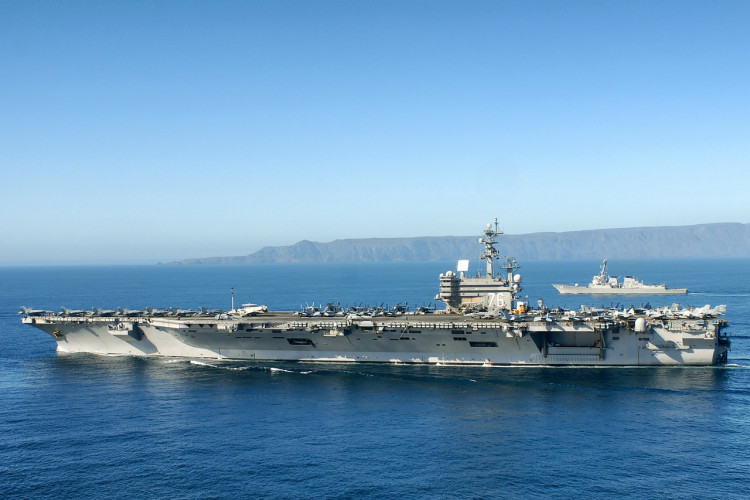The United States is ramping up its military presence in the Middle East, deploying significant naval assets as tensions escalate following a series of targeted assassinations and growing threats of retaliation from Iran. The Pentagon announced late Sunday that Defense Secretary Lloyd Austin has ordered the deployment of the USS Georgia, a guided missile submarine, and expedited the arrival of the USS Abraham Lincoln Carrier Strike Group, signaling a robust commitment to defend Israel as it braces for potential retaliatory strikes from Iran and its regional proxies.
The decision to publicly disclose the deployment of the USS Georgia, a submarine equipped with over 150 Tomahawk cruise missiles, underscores the gravity of the situation. This rare move came after a call between Secretary Austin and Israeli Defense Minister Yoav Gallant, in which Austin reaffirmed Washington's "commitment to take every possible step to defend" its ally. Gallant briefed Austin on the readiness of the Israel Defense Forces (IDF) to counter threats from Iran and its affiliates, highlighting the interoperability between U.S. and Israeli military forces in the region.
The backdrop to these developments is the assassination of senior Hamas leader Ismail Haniyeh in Tehran last month, an act widely attributed to Israel, though the Israeli government has neither confirmed nor denied responsibility. Haniyeh's killing has heightened fears of a broad regional conflict, with Iran's Supreme Leader Ayatollah Ali Khamenei vowing "severe punishment" for the attack. The situation has been further inflamed by the assassination of a senior Hezbollah commander in Beirut, which has also been blamed on Israel.
Iran's Revolutionary Guard has reportedly begun military drills in preparation for potential retaliation, raising concerns among U.S. and allied forces about a possible escalation. In response, the U.S. has taken significant measures to bolster its military presence in the region, including the deployment of advanced fighter jets such as the F-35C, as part of the USS Abraham Lincoln Carrier Strike Group.
The presence of the USS Georgia in the region, alongside the expedited arrival of the Abraham Lincoln, sends a clear message of deterrence. These moves are designed to dissuade Iran and its proxies from launching retaliatory strikes that could trigger a broader conflict. The U.S. National Security Council (NSC) has warned that any such actions by Iran would be met with a "swift and severe response," emphasizing the high stakes involved.
European allies, including Britain, France, and Germany, have joined the U.S. in urging restraint. In a joint statement, they called on Iran and its proxies to avoid actions that could further escalate tensions, warning that they would "bear responsibility for actions that jeopardize the opportunity for peace and stability."
Meanwhile, Israel has come under renewed scrutiny following a deadly strike on a school in Gaza City, which reportedly killed at least 100 people and injured dozens more. The IDF stated that the strike targeted a Hamas command center embedded within the school compound and that "numerous steps were taken to mitigate the risk of harming civilians." However, the White House expressed "deep concern" over the incident, reiterating that Israel must take measures to minimize civilian casualties.




